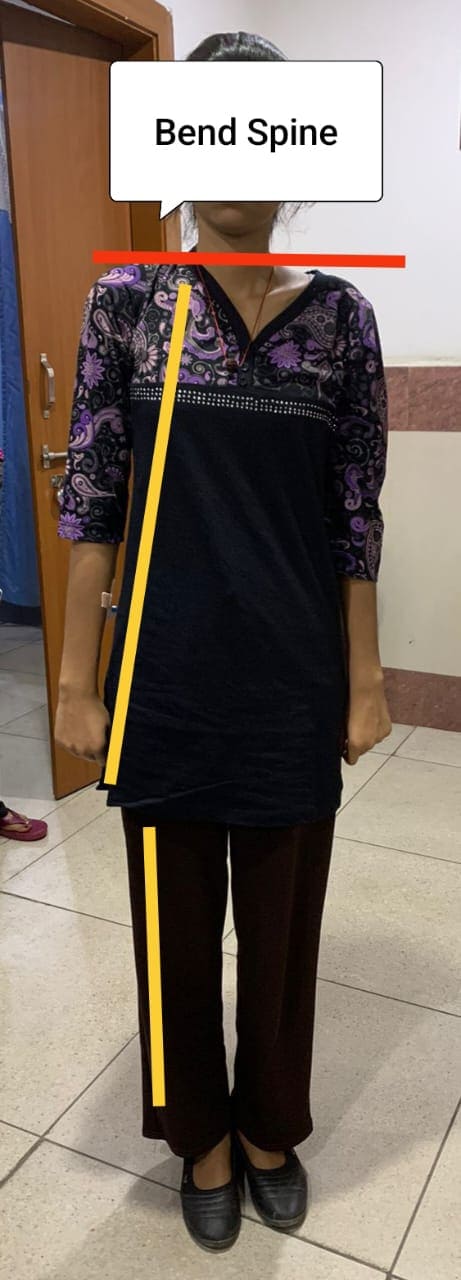Case 4 – Spine Scoliotic Deformity With Hemivertebrae Case
Patient Snapshot
- Age/Sex: 20 year old female
- Main Complaints: Visible spinal deformity (bent spine), uneven shoulders, tilted posture, and mild back discomfort.
Diagnosis

Lumbar Scoliosis
- An abnormal sideways curve in the lower spine (lumbar region).
- In this case, the spine is significantly off-center, creating a visible body imbalance.
L4 Hemivertebra
- A congenital condition where one side of a spinal bone (L4) failed to develop fully, creating a wedge-like shape.
- This acts like a “structural wedge,” forcing the spine to curve and rotate abnormally as the body grows.
It’s a key cause of progressive scoliosis in young patients.
What the Images Show
Pre-op X-ray:

- Clear scoliosis curve marked in yellow.
- The red line (normal spinal axis) shows how far the spine has shifted sideways.
-
Clinical Photo

- The patient’s shoulder is tilted.
- Her body leans to one side due to the spinal imbalance.
- The yellow lines show how the spine is bending and causing the lower body to compensate.
-
Post-op X-ray

- The spine is now aligned closer to the red line (straight axis).
- Titanium rods and screws are in place to hold the spine straight.
- The abnormal L4 hemivertebra has been excised (surgically removed), and the spine was stabilized.
Surgery Performed
Procedure:
Scoliotic Deformity Correction
Hemivertebra Excision at L4
Surgical Steps:
- Hemivertebra Excision:To rectify the curve’s source, a wedge-shaped half-vertebra (L4) was carefully removed.
- Spinal Realignment: The remaining spinal bones were adjusted and realigned.
- Instrumentation & Fusion: Screws and rods were used to rectify the spine’s posture and provide long-term stability.
Recovery & Follow-up
- Patient started walking within a few days post-surgery.
- Physiotherapy was initiated to improve posture and muscle strength.
- Regular follow-ups are needed to monitor bone healing and spinal growth.
Outcome & Importance
- Following surgery, there was a significant improvement in both cosmetic and structural aspects.
- Prevents future curve progression and avoids long-term complications like back pain, lung compression, or posture issues.
- Increased confidence and improved quality of life for the patient, both functionally and aesthetically.
In Simple Words
A 20 year old girl had a bent spine due to a half-formed bone in her lower back. This made her body lean to one side. Dr. Sanyam Jain performed a successful surgery to remove that abnormal bone and straighten the spine using metal rods and screws. Now, her spine is straight, and she’s walking confidently again.
